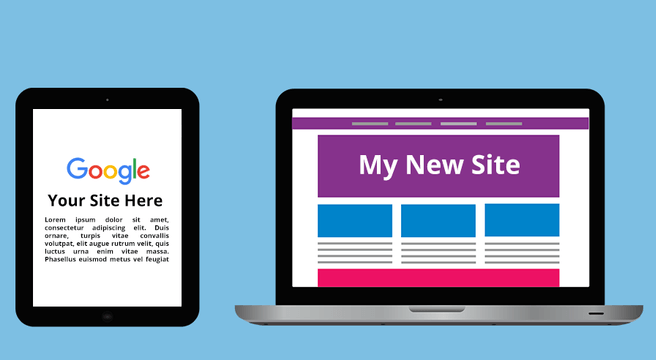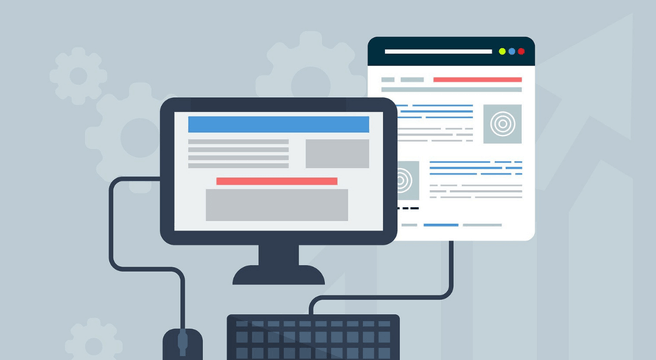You are probably already aware of how incredibly vital having an online presence is, even for the most traditional businesses. Your website is your shop window, where your customers can find you, but you do need to do a bit of work to drive potential new customers to it. SEO and PPC – working in tandem – can help you to spread your net wide, even on a modest budget.
The issue that many small-to-medium sized businesses have with SEO and PPC is often simply finding the time to learn about what they mean, how they work, and utilise them both to their greatest advantage. It is also easy to get confused between the two, and understand what the difference is between SEO and PPC, especially as they can work together in many ways.
SEO and PPC: What’s the difference, and what are the benefits?
SEO, short for Search Engine Optimisation, refers to the organic development of the text and design of your website to ensure it is optimised for Google and other search engines. The objective of SEO is to ensure that search engines and their algorithms deem your website reliable and relevant, and therefore rank you more highly in search results, sending more search traffic your way. SEO is often a gradual process, making it a good long-term investment. SEO on its own is a great way to build up your flow of organic website traffic, and if you have the skills to do it yourself, is basically free. Even if you pay a company to optimise your website for you, it is still very cost-effective in the long term, as it ensures the health of your website and its visibility to search engines on an on-going basis – not just when ads might be running. If you don’t have a big budget, SEO can be a good and low-cost way to deliver a high volume of traffic to your site. The cons? It is a gradual process that can take many months and even years for you to see the results you want.
PPC, short for pay-per-click (also known as CPC, or cost-per-click), refers to paid advertising that sends search traffic to your website. It works quite simply, these paid adverts can be seen at the top and sides of Google’s (and other search engines) search results pages. PPC means you only pay for clicks on your ad, making it very cost-effective. It can be switched on and off instantaneously as you need it, making it a good short and long-term investment. The volume of searchers’ data available with PPC makes it a great way to channel some instant targeted traffic to your website, something which is often much-needed for businesses trying to stand out in an arena with other competitors battling for their share of the search traffic. The cons? Some keywords can be expensive. Also, the moment you stop the ads, the traffic flow from that channel stops.
Why do I need both SEO and PPC? And how do I make them work together optimally?
Some companies choose to focus their efforts on one or the other, but, usually, the best results can be achieved by a combination of both SEO and PPC campaign strategy. By using SEO to ensure long term growth in organic traffic, and PPC to supplement this with a reliable stream of traffic that you can switch on and off, you can maximise the overall level of traffic your website receives.
SEO may help you to rise through the search engine results pages organically, however the top positions are set aside for adverts, so using PPC in your strategy can improve your chances of ranking highly where SEO alone can’t get you. Using the two in tandem will give you the opportunity to secure high ranks both organically and in the ads for target keywords, giving you more overall visibility, clicks and traffic. It can also give potential customers confidence to see a brand dominating both paid and organic search; it implies reliability, and a strong relevance to their search.
There is also remarketing to consider. What happens to all of those people who find your website and then click away without purchasing? You can pay for ads to “follow” people who’ve visited your website, by appearing on other sites they visit – keeping you front of mind and paving the way for them return to your site and make the purchase.
PPC can be very helpful when it comes to choosing which keywords to organically optimise your website for. Running an ad for a specific target keyword will show you very quickly (and most likely inexpensively) how well it performs, and whether or not you should use it in your web content. In fact, the data that all your PPC ads generate – such as conversion rates of keywords – can be used to inform your SEO decisions, potentially saving you a lot of time. Google Ads comes with a keyword tool that you can use to research the keywords you use in your ads and/or web content. You can then measure the performance of both your organic and paid search with Google Analytics.
What works best for your business – SEO, PPC or a combination of both? Let us know in the comments!
Read More






